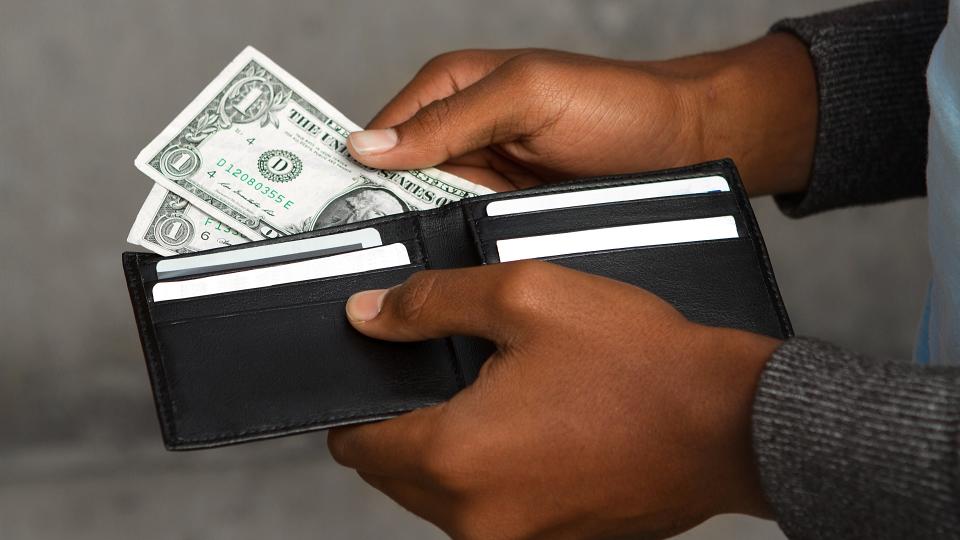
From Amazon to Etsy and everything in between, each day brings fresh opportunities to splurge, overspend and buy things you don’t need and barely want just because you can.
Check Out: 7 Things the Middle Class Won’t Be Able To Afford in the Next 5 Years
Learn More: How To Get $340 Per Year in Cash Back on Gas and Other Things You Already Buy
But the good news is that there are just as many ways to manage your money wisely, spend it well, and make purchases that are investments in yourself, your well-being and your future.
“The opportunities to spend money in a smart, productive manner are endless,” said Drew Schaffer, a financial planner and advisor in Berwyn, Pennsylvania. “Consider the values in your life that may not be receiving the attention you’d like. Brainstorm and research ideas that you feel would close that gap and allocate part of your income toward those areas to enhance your life.”
Here are 100 wise ways to spend your money.
Also see bad money habits you should break.
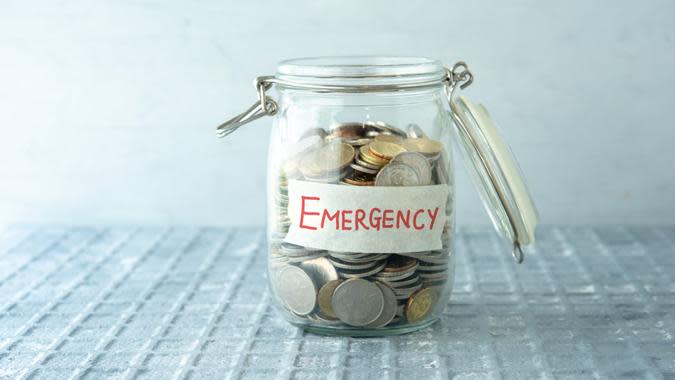

The Emergency That Hasn’t Happened Yet but Will
If you’d have to go into debt to pay for car repairs or a new furnace, your first purchase should be financial security.
“If you don’t have an emergency fund established, I would consider starting there,” said Schaffer. “This amount is different for everyone, but for households in the accumulating phase — more than five years away from retirement — I generally like to see at least three months of expenses. Once you’re nearing retirement, I recommend building this amount up to two years’ worth of anticipated retirement withdrawals.”
Find Out: How Far a $100,000 Salary Goes in America’s 50 Largest Cities
Read More: How Much Household Income Will Be Considered Upper Middle Class in 5 Years?
Sponsored: Credit card debt keeping you up at night? Find out if you can reduce your debt with these 3 steps


Your Retirement
Also, don’t buy merchandise until you’ve made a down payment on your nest egg.
“Depending on the type of goal you’re saving toward, make sure you’re taking advantage of certain savings vehicles available to you,” said Schaffer. “For retirement savings, employers will often offer retirement plans such as a 401(k) or 403(b).”
For You: ‘Rich Dad’ Robert Kiyosaki Reveals Why the 401(k) Is a ‘Horrible’ Retirement Plan


An After-Tax Retirement Account
You can’t touch the assets in pre-tax accounts like 401(k)s until you’re 59 1/2 — and you’ll have to pay taxes on your withdrawals when you do.
“If you’re already taking advantage of that, consider a Roth IRA,” said Schaffer.
After-tax Roth accounts are much more flexible, letting you tap your contributions (but not your gains) whenever you like tax-free.
Be Aware: I Lost $400K in a Roth IRA
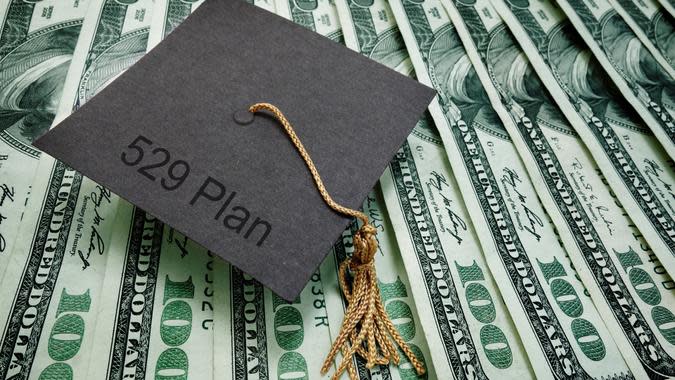

A College Fund
If you have a child who plans to attend college, higher education isn’t getting any cheaper and student debt can negate the benefits of a degree — start purchasing their future now.
“For college savings, a great vehicle that I recommend for my clients are 529 plans,” said Schaffer.


Charitable Giving
When it comes to wise uses for extra cash, “I think of spending money on something you will find valuable or something that will allow you to do something you find valuable,” said Schaffer.
“Examples that come to mind include donating to a charity you believe in or a community project or fundraiser.”


Cooking Classes
If you’re interested but not skilled in the culinary arts, Schaffer suggests investing in cooking classes, which Bite Unite says average between $25 and $100 an hour.


Yoga Classes
Schaffer also recommends yoga classes, which can benefit your mind, body and spirit at the same time. GymDesk says classes cost between $15 to $25 per session or $100 to $200 per month. Virtual classes can be even cheaper.
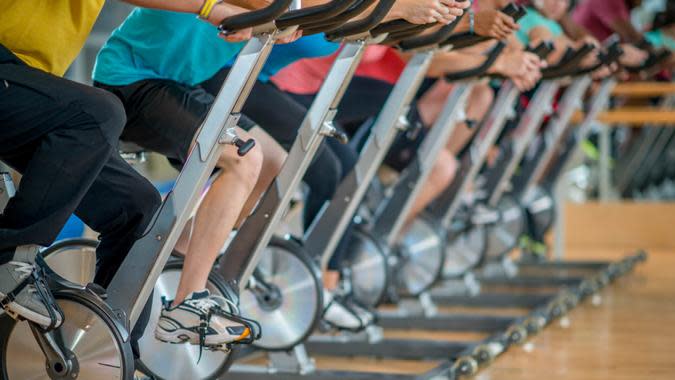

Cycling Classes
Schaffer also thinks it’s wise to invest in cycling classes, which Les Mills says can improve cardiovascular health, trim your waistline, strengthen and tone your muscles and reduce your risk of stroke, heart attack and premature death faster than most other kinds of exercise.
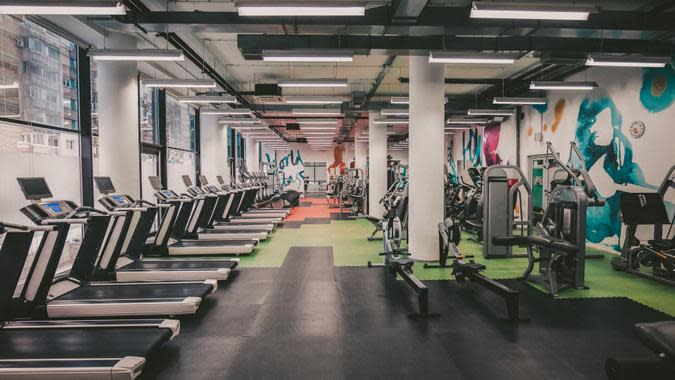

A Gym Membership
If you’re more into self-directed workouts, GoodRx Health says the average gym membership costs between $40 and $70 per month, and if you put it to good use, Schaffer says it’s an investment that’s worth every penny.
Check Out: Mark Cuban Reveals Why He Keeps a Strict Budget Everyday


A Personal Trainer
Whether you buy a gym membership or not, Schaffer says a few sessions with a personal trainer can help you get motivated while learning good habits and good form. Kickoff says the national average cost is $65 an hour.


Join a Recreational League
Schaffer recommends putting money into joining an adult rec league, which Nook Sports says can mix up your workout, help you meet people and teach you new skills while building your body and social network.


Sports Lessons
Schaffer recommends taking private or group lessons to hone your skills before joining a league in your sport of choice. Costs vary by activity, but for example, HackMotion says private golf lessons cost an average of $100 an hour or $25 in a group.


Retirement Classes
If you’re more interested in building your financial muscles, Schaffer suggests spending money on a retirement class, which can teach you to plan, prepare and save for the future. Pure Financial Advisors says the average cost is $30 to $60.


The Services of a Financial Planner
If you’re not interested in retirement-specific money advice, consider springing for a session with a more generalized financial professional.
“A financial planner can help enhance your financial future and reduce stress around your personal finances,” said Schaffer.
Harness Wealth says you’ll pay an average of $120 to $300 per hour.


A Meeting With an Estate Planner
Good estate planning attorneys aren’t cheap, but they can pay for themselves many times over in the form of taxes and fees your heirs never forfeit and legal headaches they never endure.
“An estate planning attorney can provide peace of mind that your family will be OK should an unfortunate event occur,” said Schaffer.
Learn More: 8 Things To Cut From Your Budget Now If You’re Living on Just Social Security


Professional Cleaning Services
While house cleaning services might seem like a luxurious splurge, Schaffer says it can be worth every dollar “to free up time” for you to spend doing something you love or, if possible, earning more money than you’re giving the maid through a side hustle. Forbes says the average cost is $230 for the standard house.


A Worthwhile Streaming Subscription
While personal finance pros often advise eliminating subscriptions, Schaffer suggests considering buying “a subscription to a streaming service like Spotify or Apple Music where you have access to countless hours of podcasts for educational purposes.”
Spotify costs between $5.99 and $16.99 per month, depending on your subscription level.


An e-Book Subscription
If you’re a bookworm with an e-reader, a better subscription for the money might be something like Kindle Unlimited from Amazon. There’s currently a deal that gives you the first month free, the second two months for $4.99 and $11.99 per month after that for unlimited reading.


Therapy
If you’re struggling psychologically, Schaffer says there’s no better way to spend money than on “a therapist to help with mental health and stress.”
Forbes says the average session costs $100 to $200 per hour.


A Vacation
Instead of therapy — or maybe in addition to it — consider de-stressing the fun and easy way by “booking a vacation or weekend trip to have valuable and quality family time,” said Schaffer.


Education
Jonathan Rosenfeld is the founder and managing attorney at Rosenfeld Injury Lawyers.
“My practice focuses on representing society’s most vulnerable members,” he said. “I understand the importance of wise spending to safeguard one’s financial future.”
Rosenfeld’s first pick is one that can pay for itself many times over in the form of more income and better career opportunities.
“Consider furthering your education or acquiring new skills to enhance your earning potential,” he said.
Explore More: ‘It’s Never Too Late To Become Wealthy,’ According to Robert Kiyosaki


Professional Development
If going back to college isn’t realistic, you can spend less money on less formal education that can still help you climb the career ladder.
“Allocate funds for career development courses or workshops to stay competitive in the job market,” said Rosenfeld.


Certifications
Professional certifications can be pricey, but the right ones can give you a lot of bang for the income-increasing buck.
“Learning new skills and earning certifications is a smart move,” said finance and insurance expert Rhett Stubbendeck, CEO of Leverage Planning. “It’s an investment in your biggest asset — yourself.”


Lifelong Learning
Even if it’s not you’re not pursuing education toward a specific career goal or certification, money spent on lifelong learning is never wasted.
“Invest in personal growth through books, online courses, or workshops to continuously expand knowledge and skills,” said Rosenfeld.
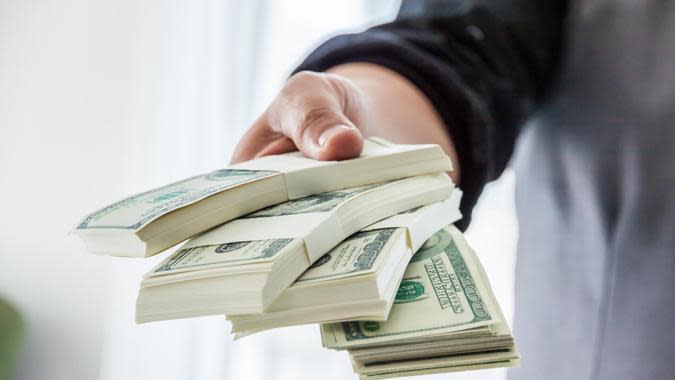

Debt Repayment
Spending money so you can owe less of it to the bank is a wise investment, too.
“Prioritize paying off high-interest debt to reduce financial strain and improve creditworthiness,” said Rosenfeld.


Health and Wellness
An investment in self-care and wellness can improve multiple aspects of your life at the same time.
“Budget for activities that promote mental well-being, such as meditation apps or self-help books,” said Rosenfeld.


A Down Payment for a Home
Housing costs are high and mortgages are expensive, but spending money to buy a home can still buy financial security and even generational wealth.
“Consider investing in homeownership as a long-term asset-building strategy,” said Rosenfeld.
Discover More: 8 Places Where Houses Are Suddenly Major Bargains
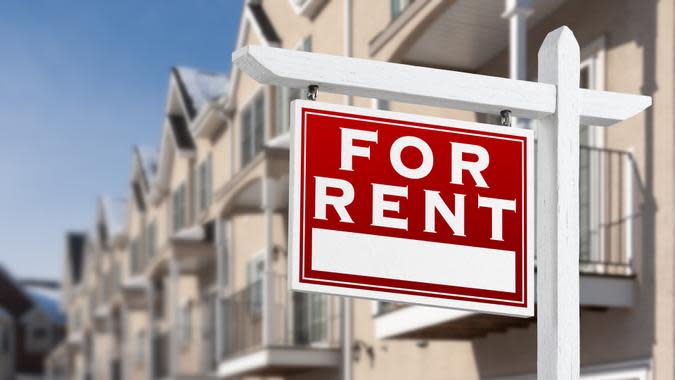

Real Estate Investments
If you don’t want to own a home — or even if you already do — property can be a powerful wealth-building tool.
“Strategic investment in real estate can provide steady rental income, potential property appreciation, and portfolio diversification, contributing to overall financial stability and growth,” said finance expert Michael Ashley, founder of Ashley Insights.
Here are seven strategies to consider.


House Hacking
If you’re considering homeownership but are also interested in real estate investing, consider house hacking, which QuickenLoans describes as renting part of your home while also living in it. Typically, an investor/homeowner buys a multi-family home and lives in one unit while renting the others.
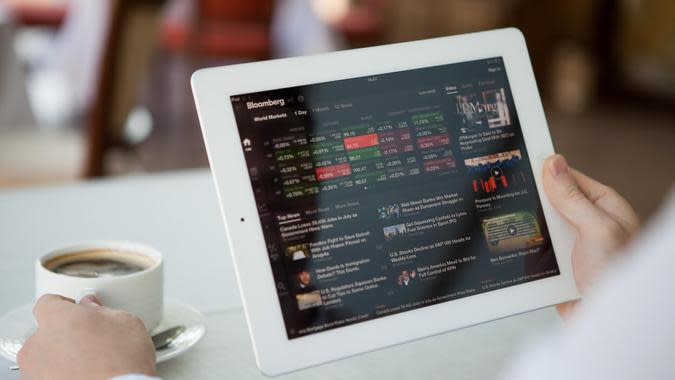

REITs
One of the easiest ways to invest in real estate without owning property is to buy shares of a real estate investment trust (REIT). According to Charles Schwab, they’re publicly traded on major exchanges just like stocks, are fully liquid and often pay outsized dividends.


Real Estate Crowdfunding
You might also invest through real estate crowdfunding, which Rocket Mortgage explains lets you pool your money with other investors through sites like Fundrise, RealtyMogul and CrowdStreet.
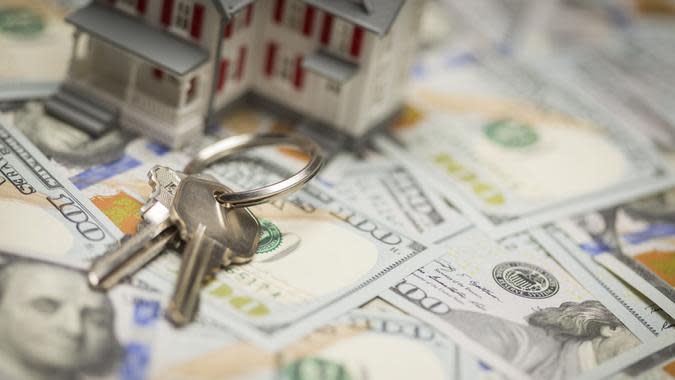

Private Mortgage Notes
According to Aspen Funds, you can also buy mortgage notes, which lets you invest in real estate by taking ownership, or partial ownership, of housing loans, making the investor the lender.


Real Estate Syndications
According to Equity Multiple, real estate syndications offer accredited investors the opportunity to pool their significant resources to finance a single investment as part of a partnership that gives them both ownership rights and the potential for returns.
Check Out: Home Prices Are Plummeting in 10 Formerly Overpriced Housing Markets


Private Investment Clubs
Most people don’t have the wealth to qualify as accredited investors. They can consider joining private real estate investment clubs, like SparkRental, to pursue opportunities similar to syndications but with a much lower upfront investment.


Farmland Investing
Platforms like AcreTrader and FarmTogether let investors pool their resources to invest in farmland without having to manage or even ever see it.


Invest in Personal Relationships
Your money gets the biggest ROI when you spend it to cultivate and nurture important personal relationships.
“Allocate resources for experiences with loved ones, fostering meaningful connections and enriching your life beyond material possessions,” said Rosenfeld.


Insurance Coverage
One good way to spend your money is to buy security against emergencies and disasters that would otherwise make you go broke.
“Invest in adequate insurance coverage for health, life, disability, and property to protect against unforeseen risks,” said Rosenfeld.


DIY Skills
A workshop or course that teaches you the fundamentals of keeping your house, car and stuff in good working order can pay you back in the form of service providers never called and paid.
“Learn basic maintenance and repair skills to save money on household expenses and extend the lifespan of belongings,” said Rosenfeld.
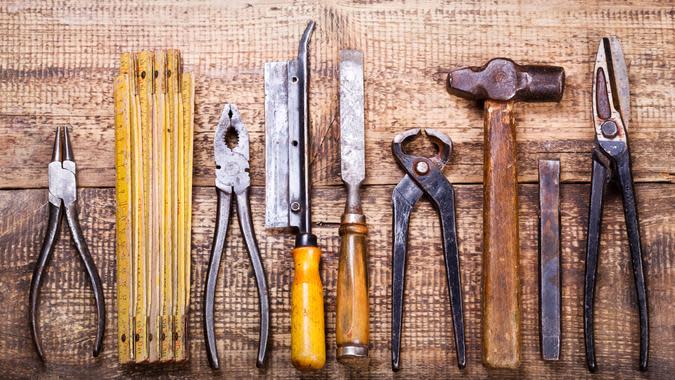

Good Tools
Even if you’re not an avid DIYer, Slip Industries says it’s important to invest in a good set of basic tools because quality tools are safer, more durable, last longer and produce better results in less time.


Tax Planning
An investment in a session with a CPA or tax lawyer can pay dividends by keeping more of your money out of the IRS’s hands.
“Strategize tax-saving opportunities like contributing to retirement accounts or taking advantage of tax credits and deductions,” said Rosenfeld.
Read More: 9 Strategies Americans Are Using To Minimize the Taxes They Pay on Retirement Savings


High-Quality Goods
Spending more on things you won’t have to replace isn’t a splurge. It’s a long-term investment.
“I always say, ‘Buy it nice or buy it twice,’” said Stubbendeck. “Quality items last longer and save you money over time.”


Refurbished Electronics
Factory-reconditioned electronics offer new performance at used prices.
“Opting for refurbished tech can be a real wallet-saver,” said Stubbendeck. “Many times, these gadgets work just as well as the new ones.”


Health Insurance
The law no longer requires you to obtain health insurance under the threat of a tax penalty, but that doesn’t mean buying coverage is a bad investment.
“Health insurance is a must,” said Stubbendeck. “One health emergency without it can set you back massively.”


Thrift Shopping
Similarly, it can be wise to spend less on second-hand goods if they are of comparable quality to their brand-new counterparts.
“Practicing thrift shopping for durable goods like furniture, clothing and electronics can result in substantial cost savings without compromising quality, allowing individuals to stretch their budgets further,” said Ashley.
Explore More: These 10 Aldi Brand Products Are Worth Every Penny


Experiences
Whether it’s rock climbing, fishing or a ride in a hot air balloon, it’s worth spending money to experience the things that stir your passions and make life worth living
“I’m a big believer in buying experiences over things,” said Stubbendeck. “The memories last a lifetime.”


Energy-Efficient Home Upgrades
Any spending that lowers long-term costs can be worth the investment — especially for big, unavoidable expenses like utility bills.
“Upgrading your home to be more energy-efficient cuts down on bills and is good for our planet,” said Stubbendeck.
Here are some eco-friendly upgrades that can pay you back.


A Home Energy Audit
Start with a home energy audit, which Forbes says costs an average of $425. That money buys a thorough examination from a professional home energy auditor who spots inefficiencies and recommends improvements.
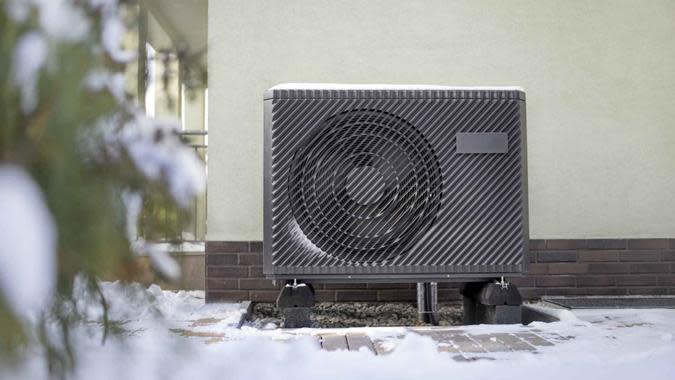

A Heat Pump
According to the International Energy Agency, heat pumps are far more efficient and cost much less to run than boilers, electric heaters and air conditioners because they transfer heat instead of generating it. According to Architectural Digest, the average cost is $4,200 to $7,600.
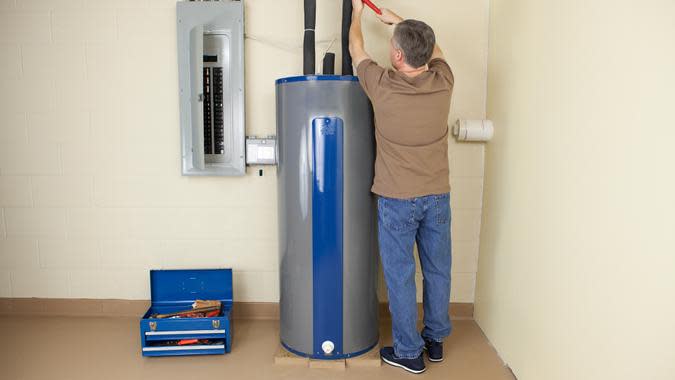

A New Hot Water Heater
The U.S. Department of Energy’s Energy Saver program says an EnergyStar-certified water heater — either tank-based or tankless — is a wise investment because heating water is the No. 3 largest energy expense, accounting for 12% of the average household’s overall utility bill.
Explore More: 9 Bills Frugal People Don’t Pay
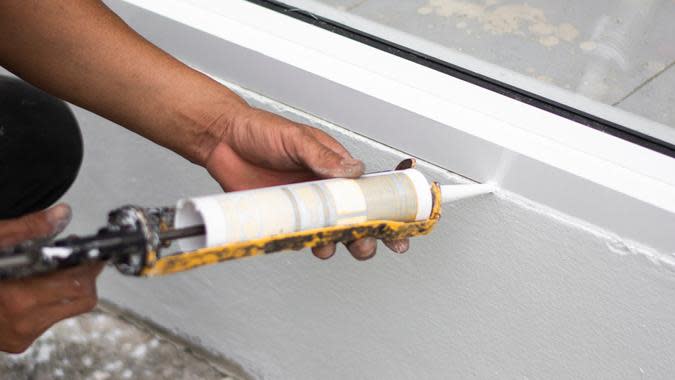

Air Sealing Your Home
According to Energy Saver, sealing air leaks can improve your home’s energy efficiency by 5% to 30%. Fixr says the national average cost range is $600 to $2,300, but if your home audit reveals only minor gaps, a DIYer can knock it out with a few dollars worth of caulk.


Adding or Upgrading Insulation
EnergyStar says homeowners can save 15% on heating and cooling costs — 11% of total energy bills — by improving or adding insulation to their attics, crawlspaces and other thermal-transfer hotspots.
According to HomeGuide, the average cost is between $1 and $4.50 per square foot.


Upgraded Windows, Skylights and Doors
Energy Saver says that 20% of unintended air transfer happens through windows, doors and skylights, all of which can benefit from upgrades to EnergyStar products. Storm windows alone can reduce heat loss by 25% to 50%.
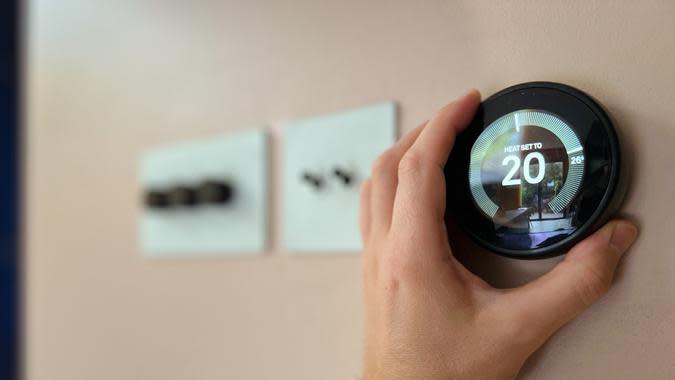

Programmable Thermostats
Energy Saver says installing programmable thermostats can save you 10% on energy costs per year.
Find Out: 6 Industries That Won’t Exist by 2040
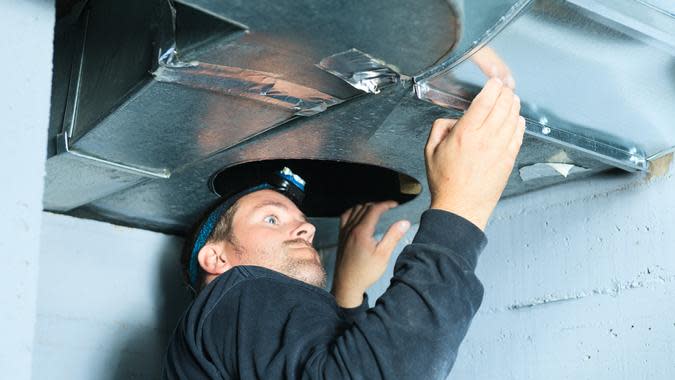

Duct Sealing
Energy Saver says you can lose 60% of your heated air before it reaches its destination if your ducts are leaky. Angie’s List says the average cost for sealing the gaps is $500 to $4,000.
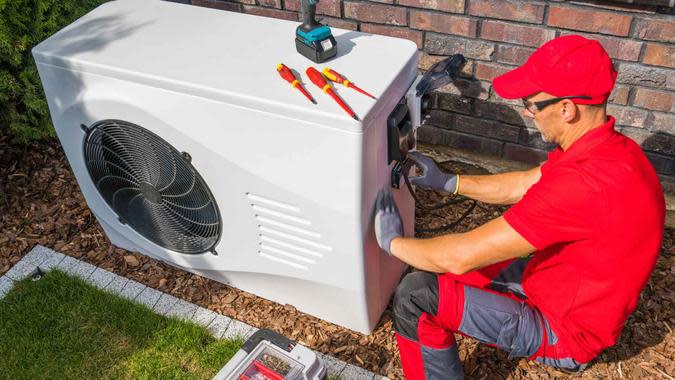

Tune Up or Upgrade Heating and Cooling Systems
Replacing your home’s heating and cooling system with energy-efficient upgrades brings big long-term savings — but simply paying for basic maintenance can, too. Energy Saver says both options can reduce your bills by 25% to 50%.
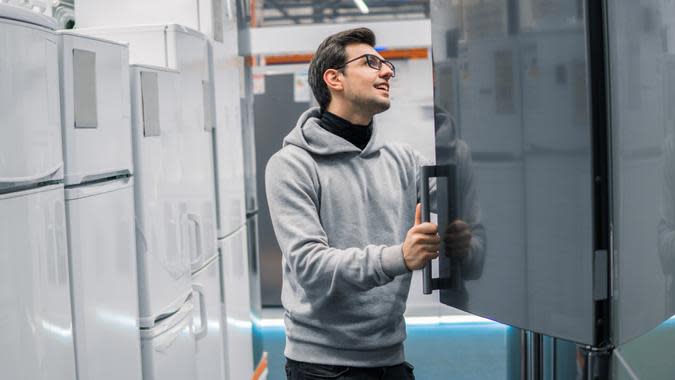

Upgraded Appliances
Energy Saver estimates appliances like refrigerators, washers and dryers account for more than 15% of your energy consumption, and EnergyStar-certified upgrades can pay immediate dividends.


Energy-Efficient Lighting
Energy Saver says lighting gobbles up 11% of the average household’s energy budget, and that upgrading to EnergyStar bulbs and fixtures can reduce lighting costs by 50% to 75%.


Solar Panels
Installing solar panels is not cheap — Forbes estimates the average cost is $16,000 — but that sum buys you the ability to generate electricity instead of consuming it. You can expect to earn $10 for every $100 you spend and save $125 per month or $1,500 per year on energy costs, meaning solar panels pay for themselves in eight to 13 years.
Trending Now: A $150K Income Is ‘Lower Middle Class’ In These High-Cost Cities
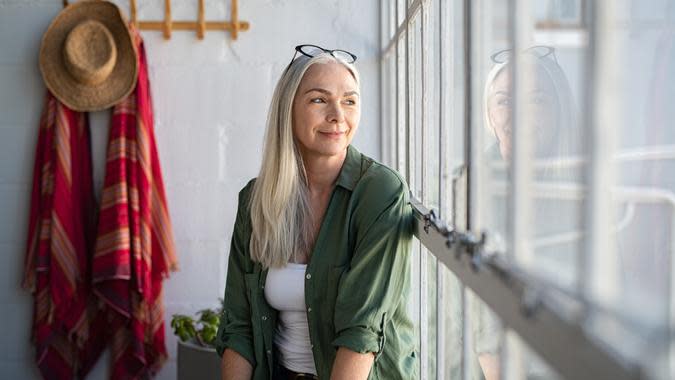

Quality Window Treatments
According to Consumer Reports, the strategic use of quality window treatments can reduce heat gain by up to 77% in the summer and provide comparable gains for heat loss in the winter.


Investing
One of the best uses of money is to put it to work.
“Allocating funds toward a well-diversified investment portfolio, tailored to individual risk tolerance and financial goals can generate passive income and capital appreciation, fostering wealth accumulation over the long term,” said Ashley.
Here are some investments to consider.


Index Funds
Most experts agree that trying to pick individual stocks is a fool’s errand even for seasoned investors, but paying professionals to actively manage mutual funds is expensive. A simple fix for even the greenest investors is to buy a passively managed index fund that mirrors the performance of an index like the S&P 500. They’re comparatively dirt cheap and guarantee you’ll mirror the market’s performance, which the vast majority of highly compensated professional fund managers fail to do over time.
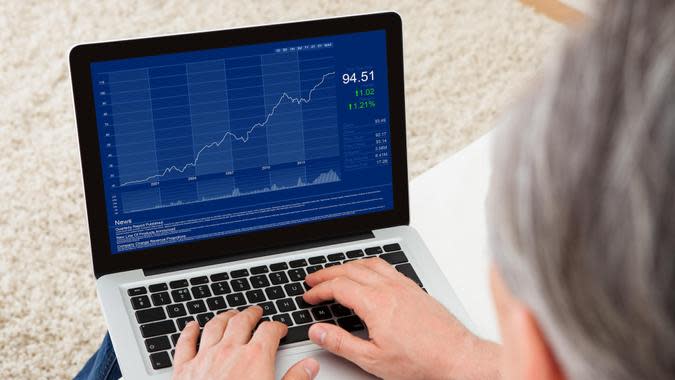

ETFs
According to Schwab, many, but not all exchange-traded funds (ETFs) mirror indexes just like index funds — but they can also track sectors like biotech, asset classes like commodities or bonds, concepts like sustainability or just about anything else that piques your investing interest. They provide instant diversification, they’re fully liquid, they trade in shares on the open market and they’re cheap compared to actively managed funds.


Dividend Stocks
Unlike traditional stocks, dividend stocks provide income that you can access without selling any shares. According to Time, if your shares appreciate, your holdings become more valuable and your distributions get bigger over time. You can also choose to reinvest your dividends to grow your nest egg without contributing your own money.
Learn More: I’m a Self-Made Millionaire — 5 Stocks You Shouldn’t Sell
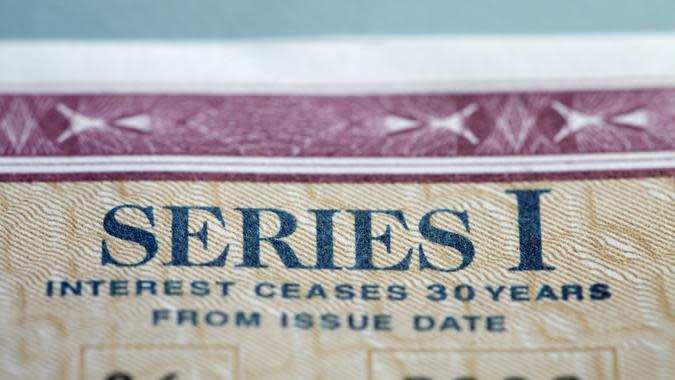

I Bonds
Series I Bonds are backed by the U.S. government and provide a hedge against rising prices by locking in an inflation-adjusted interest rate for six months.
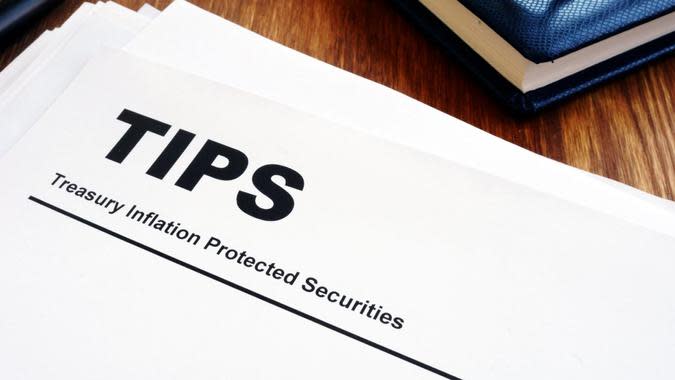

TIPS
Treasury Inflation-Protected Securities (TIPS) are also backed by the federal government and protect your money from rising prices differently than I Bonds. They work by adjusting your principal for inflation, not the interest rate.


A Good Mattress
Money spent on health and wellbeing is always a good investment, but unlike yoga classes or a gym membership, some of the smartest expenditures are one-and-done buys.
“Invest in a one-time purchase that will provide long-term benefits,” said Asher Furst, founder of the personal finance site Get Made Simple.
Furst suggests starting with a good mattress, an idea that a Sleep Foundation study backs up. The results found that a poor mattress can deny you the restorative benefits of sleep, cause body pain, hasten mental decline and contribute to allergies.
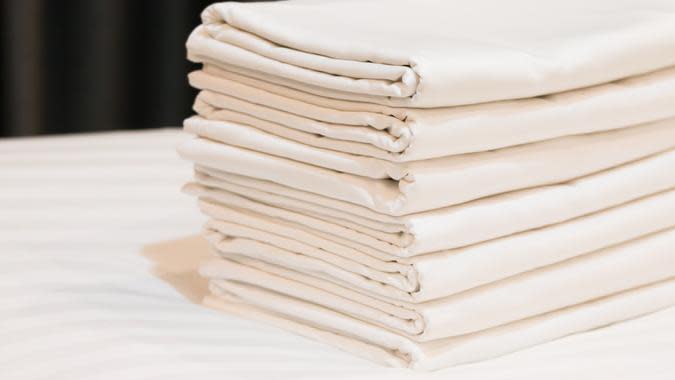

Good Bed Sheets
According to Forbes Health, high-quality bed sheets can improve sleep quality, increase comfort, reduce allergens and improve skin health.
Check Out: 7 Popular Clothing Brands the Middle Class Can’t Afford Anymore


A Humidifier
Furst also suggests investing in a humidifier, which GoodRx says can eliminate or reduce snoring, keep germs at bay, ease sinus problems, relieve dry skin and reduce allergies.


A Good Office Chair
Furst’s next suggestion is an ergonomic office chair for anyone who works from home or spends a long time sitting down. Preferred Ergonomics says the benefits include improved posture, reduced back and neck pain and decreased pressure on your hips.


A Standing Desk
Health professionals warn that sitting is the new smoking — and that modern people do far too much of it. According to the Orthopaedic Hospital of Wisconsin, switching to a standing desk can correct your posture, increase your energy, improve circulation, reduce back pain and increase your mood and focus.


A Water Filtration System
Furst thinks Brita or a similar water filtration system is worth the money, especially if it keeps you from buying bottled water. According to the CDC, this investment can improve the taste and smell of your water and the food you cook with it while reducing the ingestion of microplastics and improving hydration.


Hiring a Career Coach
Furst thinks money spent on a career coach can pay for itself and then some if a professional helps you change careers, improve your marketability, find a job or build your resume. MentorCruise says the average cost is $75 to $150 per hour.
Read More: 26 Ways To Make $1,000 Fast — In a Week or Less


Hiring a Life Coach
Life coaches, who help their clients build a vision for their future and then develop plans for realizing that vision, are also high on Furst’s list. According to professional coach directory Noomii, the average cost is $75 to $200 per hour.


Hiring a Business Coach
If you own a business or are an aspiring entrepreneur, a business coach can offer specialized guidance specific to your industry or idea, guide you through the rigors of launching or growing a startup and help you solve problems along the way. They can cost $200 an hour or $500 to $5,000 per month.


Hiring a Relationship Coach
If you’re looking to find greater fulfillment in your personal and romantic relationships, Noomii says relationship coaches charge $50 to $300 per hour.


Learning a Language
Learning a new language can expand your professional, personal and cultural horizons, and you can become fluent faster than you might think for lessons that Grammarly says average $200 to $400 per month.
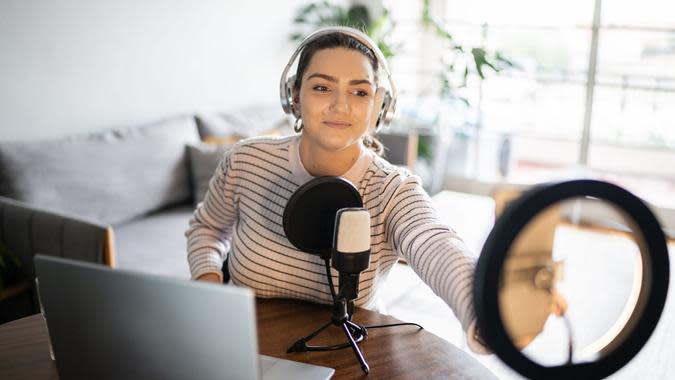

Launching a Side Hustle
It’s possible to start a side hustle without any capital investment, but in most cases, you’ll have to shell out at least some money upfront. Furst thinks it’s well worth the expense if the side hustle pays you back with a steady income stream.
For You: Mark Cuban’s 5 Best Passive Income Ideas


A Website
If you don’t launch a full side hustle, but you have work, art, ideas or anything else you want to showcase for prospective clients, employers, collaborators or even just your family and friends, Furst says a website is a worthwhile investment.


A Virtual Assistant
Upwork says the median virtual assistant charges $13 an hour, which can be money well spent to free up your valuable time by farming out tedious administrative tasks to a remote helper.
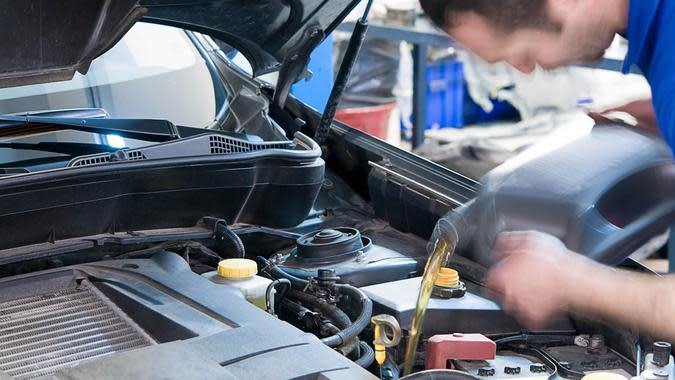

An Oil Change
Kelley Blue Book says the average oil change costs $35 to $75, and it might be the best money you ever spend on your car considering the damage it can prevent. Progressive says regular oil changes improve engine performance and gas mileage while extending your vehicle’s longevity. Go long enough without one and engine death is a certainty.


Tire Rotation
KBB says the average tire rotation costs $60 to $72, which is well worth the price considering that this critical service distributes wear evenly across all four tires, extending their lifespan and improving safety.


Good Tires
According to Consumer Reports, a good set of tires can last for more than 70,000 miles, while cheap tires will wear out faster, underperform and result in lower gas mileage, longer braking distances and substandard handling.
Explore More: These 10 Used Cars Will Last Longer Than an Average New Vehicle
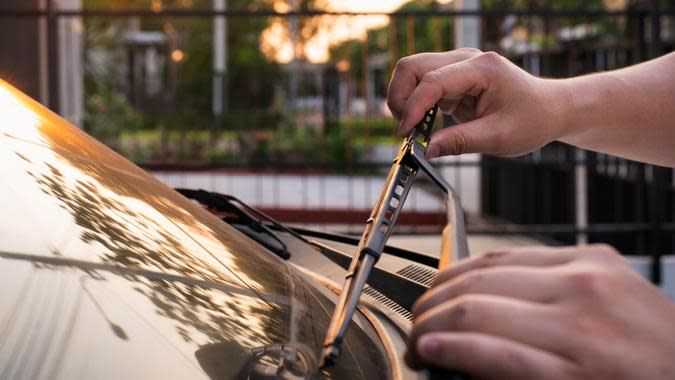

New Wiper Blades
If your windshield wipers leave streaks, stutter, chatter, drag or otherwise underperform, you’re endangering your car, your life and the lives of other drivers and pedestrians — but the good news is that there’s an inexpensive fix. KBB says you can have a repair shop change them for about $50 or buy a pair for much less and DIY it.


Meal Prep Containers
Depending on size, quantity and quality, you can score meal prep containers for $10 to $30 on Amazon, and they can be a savvy long-term investment. Everyday Health says meal-prepping saves money and time, improves your diet and has been linked to weight loss and increased household efficiency.


Meal Kit Delivery
If you want to cook but don’t have the skill or time, CBS News says five budget meal kit services — Blue Apron, HelloFresh, Green Chef, Home Chef and Daily Harvest — can be cheaper than grocery shopping for the same ingredients and deliver better results in less time.


A Warehouse Club Membership
According to CBS News, a membership to Sam’s Club, BJ’s or Costco can quickly pay for itself through bulk purchasing, members-only discounts, cheap prescriptions, low-cost home goods and the various rebates and other incentives that all three offer.
Discover More: 5 Healthy Grocery Items Frugal People Buy at Sam’s Club


A Good Pair of Shoes
According to Pritchette Physical Therapy, well-made, properly fitting footwear prevents foot problems, promotes good posture, enhances athletic performance, boosts circulation, protects against injuries and supports long-term health.


Nice Clothes
You don’t need to splurge on designer duds; but, according to Forbes, studies show that dressing well boosts confidence, improves social and career standing and garners positive feelings from people in your social and professional networks.


Dental Care and Good Oral Health
Dental work is typically not included in standard health insurance coverage, but it’s an investment worth making because according to Guardian Life, there is a direct connection between poor oral health and diminished overall health, including heart disease, cardiovascular disease, pregnancy and birth complications, pneumonia and Alzheimer’s disease.


Eye Care
According to the CDC, investing in a trip to the eye doctor can help you remedy poor vision, which can reduce dizziness, eye strain, headaches and redness of the eyes. More important: An eye doctor can spot serious eye problems that can lead to permanent vision loss or blindness while still early enough to treat.
Find Out: 5 Unnecessary Bills You Should Stop Paying in 2024
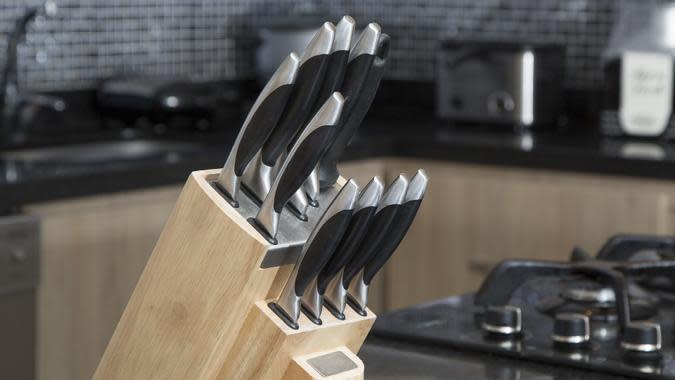

A Good Set of Knives
According to Food and Wine, sharp, high-quality knives are easier to use, make you more inclined to cook at home, produce better results and are safer than low-quality dull knives because they’re more predictable and less likely to slip.
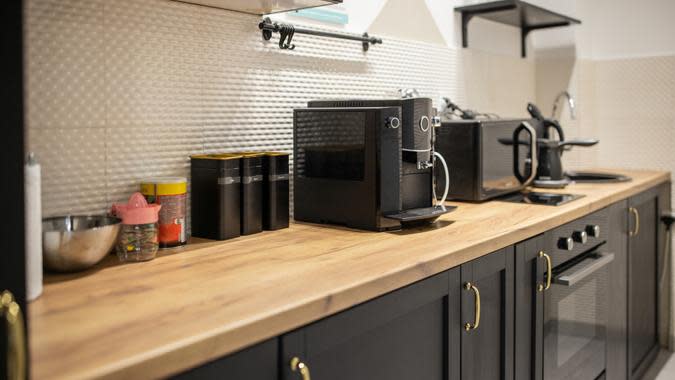

A Good Coffee Maker
According to CNET, the average coffee drinker can save between $308 and $736 per year by skipping Starbucks and becoming their own in-home barista. If you can’t function without your daily dose, a decent coffee maker will pay for itself in a few months.
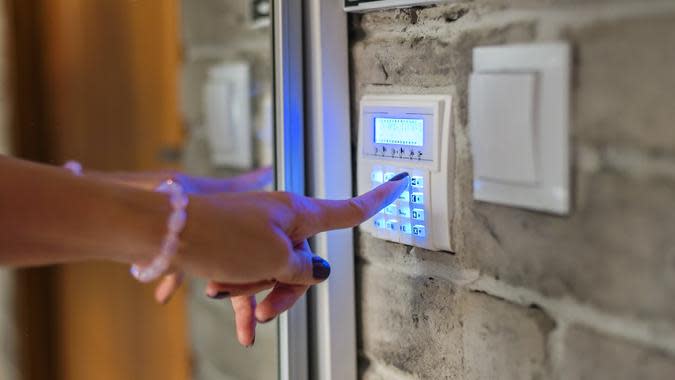

A Home Security System
According to U.S. News and World Report, a home security system is a worthy investment because it can protect your family and belongings, deter burglars, reduce home insurance premiums and provide peace of mind.


A Pet
Pets can be expensive, but according to the CDC, an animal companion can increase opportunities for exercise and socialization and help manage loneliness and even depression while reducing anxiety and supporting cognitive function.


Good Shampoo
According to Rush Memorial Hospital, the purchase of high-quality shampoo is an investment in your health. Good shampoo stimulates hair growth, promotes good scalp health, reduces dandruff and improves your hair’s feel and texture.


Good Luggage
According to Medium, quality luggage is more durable and outlasts cheap alternatives, which will cost more in the long run when you have to replace it too soon. Good luggage also makes packing simpler, is easier to maneuver and carry, is lighter and has better organizational features.
Check Out: Dave Ramsey Lists 7 Vacation Splurges That Are Wastes of Money


A Warm Winter Jacket
There’s no need to overspend on trends or designer brands, but a nice, warm winter jacket will last for years or even decades and fend off uncomfortable or even dangerous cold in the winter months.
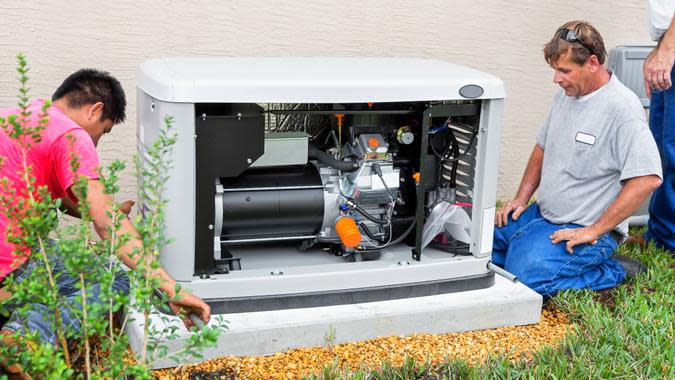

A Generator
A generator can get you through a storm — or even a protracted period without power — by keeping your appliances running, keeping the lights on, preventing food waste in thawed-out fridges and freezers, powering up your devices and keeping critical medical equipment running.


A Good Computer
A quality computer improves productivity, is more reliable, faster, less frustrating and more practical than a junker with insufficient memory, speed and functionality. A good one will cost more, but will last longer and save you money by lengthening the time between upgrades.


Anything That Fits Into a Mindful Spending Plan
Finally, the best way to spend money is through a holistic approach that accounts for not just your budget, but your spending habits, triggers, wants and needs.
Rosenfeld said, “Practice mindful spending by evaluating purchases based on their alignment with your values and long-term goals.”
More From GOBankingRates
This article originally appeared on GOBankingRates.com: 100 Genius Ways To Spend, Save and Invest Your Money in 2024

